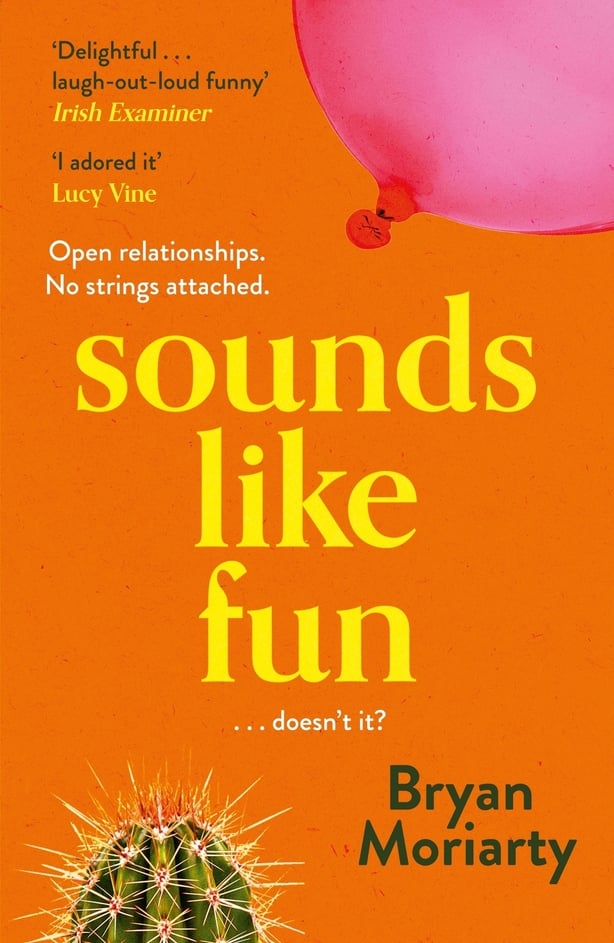'It's been a strange, wonderful trip.' Debut novelist Bryan Moriarty introduces his 'queer, contemporary romantic comedy' Sounds Like Fun, a tale of love, loneliness, coffee and the pitfalls of an ill-advised selfie...
A few years ago, I was out for a drink and a gossip with a friend, when he brought up a couple he knew who were in an open relationship. One half of the couple, my friend told me, was delighted with their arrangement, while the other had recently confessed that he was longing for the day he could have his boyfriend all to himself again. This anecdote sparked off question after question in my mind. Had the reluctant partner always felt this way, or did he change his mind after a few years? Why couldn't he bring it up with his boyfriend? Had he brought it up and been ignored? Why did he tell my friend about it?
I don’t remember dwelling on these questions for long, but they must have lodged in my subconscious, because a few months later, when I started scribbling down ideas for my first novel, the potential for comedy and tension in an open relationship floated to the surface of my mind. I started to write from the perspective of that reluctant partner, and as I did so, a queer, contemporary romantic comedy began to emerge.
I wrote the first draft of Sounds Like Fun in a month, doggedly writing ten pages a day, no matter how good or bad I felt those pages were. I tried to write it with a sense of intimacy and humour, often thinking of Maeve’s Times, the wonderful collection of Maeve Binchy’s non-fiction essays and journalism, which have the tone and energy of a conversation with a friend over coffee.

As the month progressed, I found that as well as writing about relationships and one-night stands, I was also exploring themes of loneliness and isolation in London, as well as the perils of loving someone so much that you prioritise them above everything else in your life. Deep-seated loneliness and toxic co-dependency aren't my personal experiences, but I found there was a lot I could relate to and explore in them. I also loved watching small, incidental characters grow as I wrote them, until they became my favourites, tempting me into writing them into one more scene or chapter.
Everything about writing Sounds Like Fun was surprising, and now that the book is out there in the world, I find myself surprised all over again that people are not only reading but reacting to it, sharing what they relate to and forging a connection with characters who used to live solely in my mind. It’s been a strange, wonderful trip.
Sounds Like Fun is published by Hodder & Stoughton

